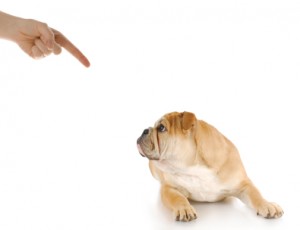Shame makes the world go round, but I’m starting to feel motion sickness.
Shame is the emotion produced when you feel that you don’t measure up to an external standard. It usually involves feeling embarrassed over something we did wrong. Shame is certainly an appropriate feeling at times, but as the primary strategy for motivating it falls lifelessly short.
Shaming as a strategy fails because it often has a de-motivating effect on us. Yet, it’s hard to turn on the radio, pick up a book, or listen to a sermon without hearing people call us to action by making us more aware of our failings.
Why is shame such a popular strategy? It’s because shame, like a shock collar on a dog, often produces short-term, immediate results. Our family adopted Ezra, a German Wirehair puppy, three years ago. As soon as we brought him home, I began training him using snacks and praise and scratches behind his ears. Ezra quickly learned that when I grabbed the fetching bumper and a handful of jerky treats, it was playtime. When Ezra wags his tail, he shakes from the neck down. These training moments were pure pleasure for both of us.
Then I messed with perfection. When Ezra was about a year old, I tried to train him without the reward of jerky treats. As soon as he figured out that a meaty reward wasn’t waiting at the end of a fetch, he decided to chase butterflies. To his benefit and not mine, hundreds of painted ladies had just hatched, presenting him with multiple options. As Ezra chased one butterfly into the backyard, I decided that this was the perfect time to try the training collar I’d just purchased.
I buckled it around his neck, threw the bumper, and gave the command, “Fetch!”
Ezra looked at the bumper, then back at me, and then bounded off in the opposite direction after another butterfly. Time to use stimulation. I put the collar on the lowest setting, repeated the command “Fetch,” and pushed the button on the transmitter.
It worked, sort of. Ezra yelped and raced off after the dummy. He brought it back to me and dropped it at my feet. Then he tucked his tail between his legs, threw himself down between my feet, and covered his nose with his paws. The look of exuberance in his eyes gave way to a look of defeat.
I felt terrible. I removed the collar and sat on the grass by Ezra. I scratched his belly for a few moments and then threw the bumper again. When I gave the command again to fetch, he wouldn’t move. He lay on the grass, looking up at me as if to say, “I’m done.” The sheer joy of training and playing together was gone for both of us.
I see this same “I’m done” expression in the eyes of men and women almost every week.
As I said, sometimes shame is an appropriate emotion. There are times when people should feel shame, but don’t. Yet it’s been my experience that many people know they’re making mistakes or messing up—especially those who have the Spirit of God—and so trying to motivate them to “live better” by making them feel embarrassed, humiliated, and guilty is not helpful. In fact, it often cripples the sense of joy, peace, and relationship that actually does help us live as we ought to live.
I’m curious: Do you live with a constant sense of shame? Do you fall back on shame as a way of motivating those around you?











